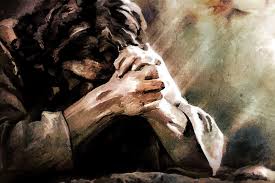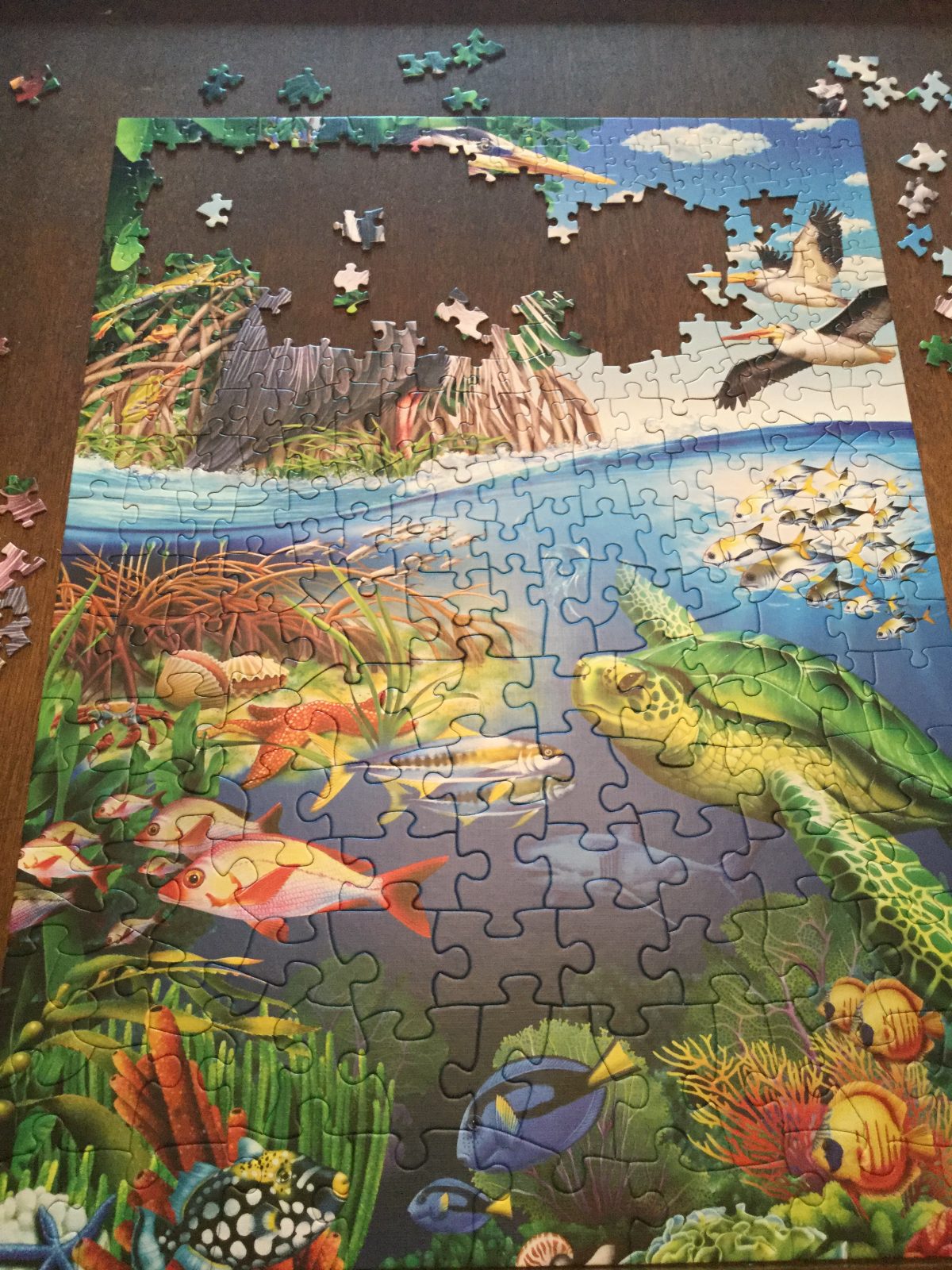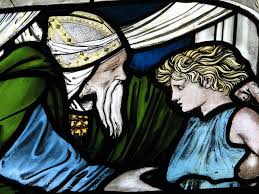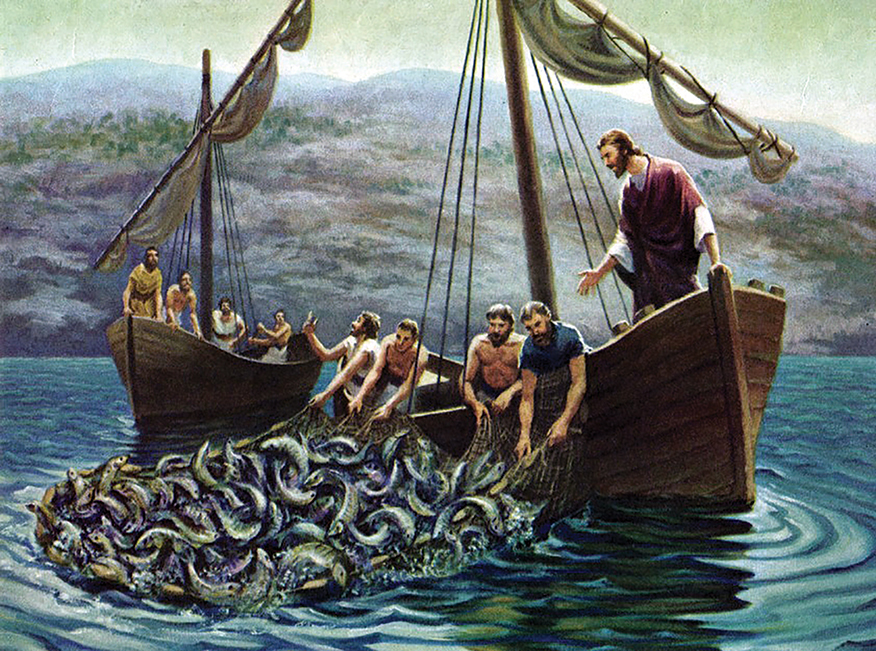Background Passage: Luke 11:1-13; I Thessalonians 5:17
As the sun rose, Jesus sat silhouetted against the hills, his back against a fig tree. His disciples watched a short distance away, mesmerized by the intensity of the private conversation between Jesus and his father in heaven. They noticed a difference in the prayers of their master and their own more ritualized mutterings. While Jesus prayed passionately and with purpose, theirs seemed more rote than real.
His daily prayer finished, Jesus walked toward them, smiling brighter than the morning sun. “Let’s eat,” he said as he patted his hungry stomach and clapped his hands to get their attention. Nathaniel walked beside Jesus as they entered the courtyard of the house where they were staying, glancing at Jesus as if he had something on his mind.
Jesus eyed Nathaniel and the other disciples who tried hard to go unnoticed. The master grinned, shrugged his shoulders and asked, “What’s on your mind?”
Voicing the words whispered by other disciples that morning as Jesus prayed, Nathaniel spoke up. “John taught his disciples to pray. We’ve watched you, Jesus. Heard your words. Can you teach us to pray as you do?”
As they settled into breakfast, the lesson began.
“Pray like this,” he said,
“Our Father, in heaven,
Hallowed by your name.
Your kingdom come. Your will be done
on earth as it is in heaven…”
Jesus finished his model prayer and looked at a room filled with blank faces. They didn’t get it. He thought for a minute and told a story, driving home his point. “Think about it this way…
“Suppose one of you has a friend and he goes to him at midnight and says, ‘Friend, lend me three loaves of bread because a friend of mine on a journey has come to me and I have nothing to set before him.’”
A murmur from the disciples let Jesus know that they understood the gravity of the situation.
Unthinkable!
Unpardonable!
Steeped in culture and tradition, a Jewish family could never be caught unprepared when a guest arrived. Such a mistake was not only unthinkable, it was embarrassing and unforgivable. A fresh reminder of cultural duty.
Jesus went on to explain that the man inside did not wish to disturb his family at such a late hour. Turned his friend away at the door. The neighbor continued knocking on the door, pleading for his help, until his friend relented. Grabbing tomorrow morning’s bread from the shelf, the man handed it to the neighbor outside. A heart more filled with bitterness than benevolence.
Jesus stared quietly at his disciples who understood the intensity of that gaze to mean, “Listen up. Here’s the point.”
“I tell you, though he will not get up and give him the bread because he is his friend, yet because of the man’s boldness (shamelessness), he will get up and give him as much as he needs. So, I say to you, ‘Ask and it will be given to you; seek and you will find; knock and the door will be opened to you.’ For everyone who asks receives; he who seeks finds and to him who knocks, the door will be opened.”
Missing the point, one of the disciples probably mumbled at the back of the room. “Does God answer our prayers so reluctantly?” Jesus winked at the disciple who turned red with embarrassment. With a glint of amusement in his eyes and his tongue firmly in his cheek, Jesus answered,
“Which of you fathers, if your son asks for a fish, will give him a snake instead? Or if he asks for an egg will give him a scorpion? If you then, though you are evil (sinful), know how to give good gifts to your children, how much more will your father in heaven give the Holy Spirit to those who ask him.”
There has been a long-standing and not fully answered question in our family about the nature of prayer. Does it demonstrate more faith to go to God just once with my concern, trusting that he will answer in accordance to his will? Or am I to “pray without ceasing,” as Paul admonishes, in effect, pounding on heaven’s door until God responds?
The passage, I think, is instructive.
The disciples recognized the power of Jesus’ prayers. Personal. Passionate. Purposeful. We see Jesus throughout scripture praying in the big moments of life. At the start of his ministry…prior to a miracle…in the Garden of Gethsemane…on the cross. This day held nothing special. No significance. Just an ordinary day. Yet, we see Jesus praying. Prayer was a pattern, a routine part of his day.
As he explained his model prayer to his disciples, he used words that indicated that it was God’s intent for prayer to be a continuous part of life. Grammatically in the language of the New Testament, the verbs “ask,” “seek,” and “knock” should be read as “keep on asking,” keep on seeking” and “keep on knocking.“ Continuously bringing your requests, your concerns, your needs to the father.
Pray without ceasing. Right?
That doesn’t mean that if we are annoyingly persistent that God will give in to our requests just to shut us up. Jesus model prayer speaks to the content of the prayers that God honors. God honors and responds to prayers aligned with his will for our lives. “Your will be done” is not a catch phrase to make a greedy request sound honorable. It’s the crux of the whole thing.
God responds appropriately to the submissive heart that keeps on asking, seeking and knocking that things within the will of God will be made real in a person’s life.
“Give us this day our daily bread” speaks to our desire for God to arm us with all we need to accomplish his will in our lives. It is not a guarantee of a chicken in every pot and a car in every garage. God feeds the sparrow after all. It’s not about hitting the prayer lottery where every want gets fulfilled.
Prayer means knowing that God’s plan for my life is perfect and all I need is that which God requires me to have in order to live faithfully within his will.
“Forgive us our sins as we forgive those who sin against us” is a request for a pure and righteous heart. A desire to stay on the path God laid out for us to travel. It is a petition to put us back on that path when we decide for a moment to go our own way. It is also a request to make forgiveness a lifestyle choice, freely given to those who hurt us.
“Lead us not into temptation” serves as a plea for wisdom to make the right choices. To keep from putting myself in a position to fall away from God’s purpose and plan for my life.
Maybe Jesus is trying to convey the idea that we should be in constant prayer to God for those things that matter most to God. The things that are most important to him. The things he wants most for us.
What if our prayers were for the right words to say to a hurting friend? What if we prayed for wisdom to discern what steps to take in a crisis? What if our prayers sought patience in dealing with a difficult colleague or situation? For a pure heart? The healing of a fractured relationship? To see the good in others? For an extra measure of hope and faith? To act always in accordance to his will and way? To grow beyond my disappointments?
I think God loves it when we pray persistently and with confidence for our spiritual needs. It expresses within us the desire to have God’s help every day in becoming more like Christ.
“What father would give his son a scorpion when he asked for an egg? If a sinful person like you knows how to treat those he loves, how much more will the Father/Creator provide to his children through his spirit? A rhetorical question with an obvious answer. God will never fail to deliver on the prayers of those who ask for the right things with the right heart, at the right time and in the right spirit.
Here’s where I think I’m going with this. Maybe it’s enough for me to pray just once that I get that new job as long as it is in the Father’s will for my life to have it. Maybe I can pray only once that we stay safe in the middle of a storm. Maybe that’s a sign of my faith that God will answer or not answer based upon what’s best for me.
But, I should also pray without ceasing…keep on asking, seeking and knocking persistently…for the things of God. Wisdom. Patience. Faith. Hope. Love. God never tires of us petitioning him for that which makes us more like Christ.
Prayer is not about bending God’s will to the desires of my heart. Prayer is about aligning the desires of my heart with the will of God. God will listen to that prayer all day, every day, and twice on Sunday.
Amen?







